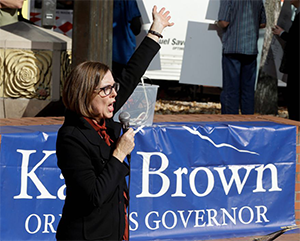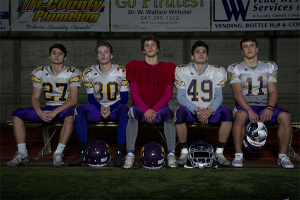 A Washington Times report draws connections between one tribe’s campaign contributions and the Oregon governor’s attitude on gaming expansion. See the story
A Washington Times report draws connections between one tribe’s campaign contributions and the Oregon governor’s attitude on gaming expansion. See the story
Portland’s Willamette Week followed up with its own take on the issue. Read it here
 A Washington Times report draws connections between one tribe’s campaign contributions and the Oregon governor’s attitude on gaming expansion. See the story
A Washington Times report draws connections between one tribe’s campaign contributions and the Oregon governor’s attitude on gaming expansion. See the story
Portland’s Willamette Week followed up with its own take on the issue. Read it here
A federal grant will help the Coquille Tribe’s Community Health Center connect patients with specialists hundreds of miles away. See media reports:

Marshfield High School’s football time was eliminated in the state semifinals. But not before the local newspaper celebrated Native American participation on the team — including three Coquille Tribe members.

Hundreds of Coos County teens connected with colleges, vocational schools and employers at the Coquille Tribe’s third annual College and Career Fair. See below for local media coverage.
In a Nature Conservancy video, Coquille Tribal biologist Helena Linnell talks about the Working Landscapes project, which is restoring salmon habitat in the Coquille Valley. View video
You can read the story of a historic moment —the day when the gates opened to restore tidewaters that had been absent for more than a century. Click here to read
Learn more about the tidelands project on the Working Landscapes website. Click here
The U.S. Justice Department on Thursday (Sept.20, 2018) announced the award of more than $4.8 million in grants to six American Indian tribes in Oregon and one tribal commission. The Coquille Indian Tribe is set to receive $268,425 for its four-officer police department.

Coquille Tribal member Jason Younker, a cultural anthropologist at the University of Oregon, is part of a team that’s developing state guidelines for managing Native American artifacts. Read the story

For details about the 2018 Mill-Luck Salmon Celebration scroll down the Entertainment page of The Mill website: